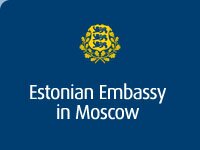Foreign Minister Paet in Riga: We Need Europe-Wide Discussion on Future of European Union
23.08.2012
No 228-E
After his meeting in Riga today with German Foreign Minister Guido Westerwelle, Latvian Foreign Minister Edgars Rinkēvičs, and Lithuanian Foreign Minister Audronius Ažubalis, Foreign Minister Urmas Paet stated that Europe is facing many serious discussions regarding its future. “Currently we are only focused on the debt crisis, which is emotionally damaging to other areas in the European Union as well. We must not allow ourselves to forget all the important things the European Union has achieved over its decades of development, or the reasons why Estonia wanted to join the European Union,” said Paet.
The foreign minister said that it is clear that we must act with more unity with regards to the economic and financial sectors. “The future and stability of the euro zone and the exit path from the debt crisis depend on how well we can co-operate in economic and fiscal policy,” he said. We also feel it is essential that all EU member states base future steps on the principle of smart growth. “For this, emphasis must be placed on structural reforms on the job market and increasing the quality of the education system. Other important factors are continuing to facilitate scientific and development activity and innovation and utilising digital opportunities,” Paet emphasised.
The foreign minister also noted that we must also start working together more effectively in foreign and security policy. “If we want Europe to continue to be a significant player in the international arena, we need to develop and visibly implement a comprehensive approach to foreign policy that takes the interests of member states into account,” he said. Paet stated that efficiently functioning European Union institutions also play a vital role in achieving better co-operation and integration within Europe.
In addition to topics regarding the future of the EU, the foreign ministers also addressed energy issues during their meeting. Foreign Minister Paet emphasised that for Estonia, one of the most important parts of the common energy policy of the EU is energy security, which would include evaluating the vulnerability of energy systems, ensuring electrical and gas supplies, and the need to create connections both within the EU and with third countries. “We need better information exchange regarding energy issues. For Estonia it is also essential that the European Union speak to Russia with one voice regarding energy-related topics,” Paet stated.
In talking about Eastern Partnership, the ministers agreed that the European Union’s southern neighbourhood still requires attention and support. Paet said that we must continue to support the democratic and economic reforms in Eastern Partnership countries but that this should be done on a “more for more” basis. This applies to Eastern Partnership funding as well as opening up more opportunities for countries that make faster progress. “Countries that successfully carry out reforms must retain a European perspective and the opportunity to achieve a visa waiver,” he said.
The foreign ministers also spoke about recent developments in Russia and the situations in the Middle East and Central Asia.
SPOKESPERSON’S OFFICE
+372 637 7654
www.vm.ee
 
|

